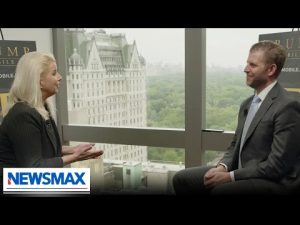As the political landscape shifts, President Trump finds himself faced with a new web of international challenges, especially concerning Iran and the increasingly complicated relationship with China. It’s hard to ignore the fact that while our attentions may sometimes be pulled to conflicts overseas, the lurking threat of China continues to grow, and many believe it poses a dire danger to our national security. The situation is changing rapidly, and it feels like we’re dealing with much more than a Cold War.
The infiltration of our American institutions by leftist ideologies is a concern that has been simmering for some time, and it seems that higher education is at the heart of this issue. Universities, often seen as bastions of learning, are becoming less American and more global. This shift is not merely an academic trend; it’s a strategic move by those who favor a Marxist agenda. With an eye toward their own worldview, many universities welcome foreign students—especially those from Communist China—while compromising the American identity and values that once defined them.
A recent report sheds light on this unsettling trend. A staggering 277,000 Chinese students are currently attending American universities, significantly impacting the academic environment. At prestigious schools like Harvard, nearly 25% of the foreign student body hails from China, and this figure nearly doubles at institutions like Columbia and Cornell. While you might think this picture of diversity is a positive thing, it raises a critical question: Are we inadvertently training the leaders of a country that poses a threat to our own?
Furthermore, students from China often pay hefty tuition, supported either through wealth tied to the Communist Party or substantial subsidies from the government. When these students arrive, they are not just here to learn; they come under strict guidelines issued by the CCP. The implications of this arrangement can’t be overlooked. After all, the deep connection between Chinese students and the regime means that our universities could be fertile ground for espionage rather than esteemed halls of learning.
While some may argue that we should welcome the brightest minds regardless of origin, it’s essential to weigh the potential costs. Historically, we never allowed the Soviet Union such deep access to our universities, markets, and industries. Chinese visitors may not be rushing to enroll in gender studies, but what do we sacrifice by allowing them to dominate our campuses? There is a growing recognition that welcoming students from adversarial backgrounds may not always yield favorable outcomes, and many increasingly question the wisdom of such policies.
In addition to the educational concerns, the influence of China doesn’t stop at our campuses. The nation is a major player in the pharmaceutical and food industries, controlling 88% of the essential ingredients in our medicines. This creates a dependence that can be detrimental to American health and security. As the Chinese continue to purchase American businesses—from food brands to iconic New York properties—questions arise about our future autonomy. There’s a clarion call for stronger restrictions on foreign ownership of real estate, especially from a nation that poses an existential threat.
Ultimately, the challenges we face are multi-faceted and deep-rooted. With so many issues at stake—from protecting our academic institutions to ensuring the safety of our population against foreign influence—President Trump has a monumental task ahead. The urgency of rooting out Chinese operatives embedded in our government cannot be overstated. America has to reclaim its strength and leverage against those who would seek to undermine it. It isn’t just about international relations; it’s about defending the very identity and values that make this country great.







